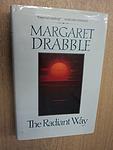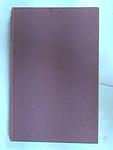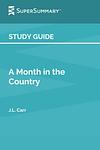The Greatest British "Fiction, Social & Cultural Fiction" Books Since 1970
Click to learn how this list is calculated.
This list represents a comprehensive and trusted collection of the greatest books. Developed through a specialized algorithm, it brings together 290 'best of' book lists to form a definitive guide to the world's most acclaimed books. For those interested in how these books are chosen, additional details can be found on the rankings page.
Genres
Social & Cultural Fiction is a literary category that encompasses novels and stories that delve into the complexities of society and culture, exploring themes such as class, race, gender, and identity within specific social contexts. These narratives often provide a lens through which readers can examine the intricacies of human relationships and the impact of cultural norms and societal structures on individuals and communities. By offering a fictional yet reflective portrayal of real-world social dynamics, this genre invites readers to gain a deeper understanding of the diverse experiences that shape our world. Authors in this category frequently use their characters and settings to comment on contemporary issues, challenge prevailing ideologies, and provoke thought about the possibility of social change, making Social & Cultural Fiction a powerful tool for empathy and a mirror for the ever-evolving human condition.
Countries
Date Range
Reading Statistics
Click the button below to see how many of these books you've read!
Download
If you're interested in downloading this list as a CSV file for use in a spreadsheet application, you can easily do so by clicking the button below. Please note that to ensure a manageable file size and faster download, the CSV will include details for only the first 500 books.
Download-
1. Midnight's Children by Salman Rushdie
The novel tells the story of Saleem Sinai, who was born at the exact moment when India gained its independence. As a result, he shares a mystical connection with other children born at the same time, all of whom possess unique, magical abilities. As Saleem grows up, his life mirrors the political and cultural changes happening in his country, from the partition of India and Pakistan, to the Bangladesh War of Independence. The story is a blend of historical fiction and magical realism, exploring themes of identity, fate, and the power of storytelling.
-
2. White Teeth by Zadie Smith
This novel follows the lives of two friends, a working-class Englishman and a Bangladeshi Muslim, living in London. The story explores the complex relationships between people of different races, cultures, and generations in modern Britain, with themes of identity, immigration, and the cultural and social changes that have shaped the country. The narrative is enriched by the characters' personal histories and the historical events that have shaped their lives.
-
3. Money by Martin Amis
"Money" is a darkly humorous novel that follows the life of John Self, a hedonistic, self-destructive director of commercials, as he navigates the excesses and depravities of 1980s New York and London. His life is filled with overindulgence in food, alcohol, drugs, and women, leading to a downward spiral of self-destruction. The novel is a satire on the excesses of capitalism and the obsession with wealth and materialism, and it also explores themes of identity, self-loathing, and the destructive power of addiction.
-
4. The Siege of Krishnapur by J. G. Farrell
Set in India during the period of the British Empire, "The Siege of Krishnapur" is a historical novel that explores the events of the 1857 Sepoy Rebellion. The narrative focuses on the British residents of the fictional town of Krishnapur as they endure a prolonged siege by Indian soldiers. The story delves into the psychological, social, and physical challenges faced by the besieged, and the gradual disintegration of their Victorian-era beliefs and lifestyle. The novel is a commentary on the British Empire, colonialism, and the clash of cultures.
-
5. The Children of Men by P. D. James
Set in a dystopian future where mankind has become infertile, the novel centers on a history professor who becomes involved with a group of revolutionaries seeking to overthrow the oppressive government. As the world descends into chaos due to the impending extinction of the human race, a miraculous pregnancy offers a glimmer of hope. The professor must protect the pregnant woman and navigate the dangerous political landscape, while grappling with the implications of a world without children.
-
6. Oranges are not the only Fruit by Jeanette Winterson
This novel follows the coming-of-age story of a young girl adopted by a religious fanatic, who believes her daughter is destined to become a missionary. As the protagonist grows up, she begins to question her mother's strict religious beliefs and discovers her own sexuality. The book explores themes of identity, love, and religion, as the protagonist grapples with her place in the world and her evolving understanding of herself.
-
7. The Line of Beauty by Alan Hollinghurst
Set in the 1980s during the era of Margaret Thatcher's conservative government in Britain, this novel follows the life of a young gay man named Nick Guest. Coming from a middle-class background, he moves into the home of his wealthy friend's family and becomes infatuated with the opulence and power of the upper class. As he navigates his way through this new world, he also explores his sexuality, all while dealing with the societal and political implications of the AIDS crisis.
-
8. London Fields by Martin Amis
The novel is a darkly comic, murder mystery set in London at the end of the 20th century. The story follows three main characters: a terminally ill American writer, a petty criminal, and a beautiful but doomed woman who predicts her own murder but not the murderer. The narrative is filled with satirical social commentary, exploring themes of love, lust, greed, and deception.
-
9. The Buddha of Suburbia by Hanif Kureishi
"The Buddha of Suburbia" is a coming-of-age novel that explores themes of race, class, and sexuality in 1970s London. The story follows the life of the protagonist, a young man of mixed English and Pakistani heritage, as he navigates his identity in the backdrop of suburban London. His father, a self-proclaimed guru, adds a layer of complexity to his journey. The novel is a darkly humorous critique of British society and its attitudes towards race and class.
-
10. Small Island by Andrea Levy
"Small Island" is a historical novel that explores the intertwined histories of Jamaica and the UK, as well as the themes of race, empire, and migration. The story is set in 1948 and is told from four different perspectives: two Jamaican immigrants, Hortense and Gilbert, who move to England after World War II, and an English couple, Queenie and Bernard. The narrative explores the racial tension, discrimination, and culture shock that the immigrants face in their new home, while also delving into the complexities of war, identity, and the British Empire.
-
11. The Radiant Way by Margaret Drabble
"The Radiant Way" is a novel that follows the lives of three women, Liz, Alix, and Esther, who meet at Cambridge in the 1950s and remain friends over the next three decades. The book explores their personal and professional lives, their relationships, and the social and political changes that take place in Britain during this time. It offers a compelling depiction of the shifting roles of women and the changing landscape of British society in the second half of the 20th century.
-
12. The Swimming-Pool Library by Alan Hollinghurst
The novel follows a young, privileged, and carefree gay man living in London. His life of leisure is interrupted when he saves the life of an elderly man, who in return asks him to write his biography. As he delves into the man's past, he uncovers a hidden history of gay life that is much darker and less accepted than the one he is used to, challenging his understanding of personal and societal progress.
-
13. An Artist of the Floating World by Kazuo Ishiguro
This novel is a historical narrative set in post-World War II Japan, focusing on an aging painter who grapples with his past as a propagandist for the imperialist movement. As he navigates the rapidly changing cultural landscape, he faces criticism and ostracism for his role in promoting Japan's militaristic past. The story explores themes of guilt, regret, and the struggle for redemption, offering a nuanced examination of the personal and societal consequences of war.
-
14. On Beauty by Zadie Smith
This novel is a contemporary, multicultural exploration of family life, love, and identity. It follows the lives of two mixed-race families, the Belseys and the Kipps, who are linked by their shared professions in academia and a complex web of marital and extramarital relationships. The story is set against the backdrop of Wellington, a fictional New England town, and explores themes of race, class, and cultural clash. It also delves into the world of academia, examining the politics and conflicts that arise in that environment.
-
15. NW: A Novel by Zadie Smith
This novel follows the lives of four Londoners - Leah, Natalie, Felix, and Nathan - as they navigate adulthood in the diverse, vibrant, and sometimes volatile neighborhood where they grew up. The narrative explores themes of identity, class, friendship, and the complex nature of urban life, intertwining the characters' stories in a way that reflects the interconnectedness and fragmentation of city living.
-
16. The Virgin in the Garden by A. S. Byatt
Set in 1953, during the coronation of Queen Elizabeth II, the novel explores the life of a highly intelligent young woman, Frederica Potter, who aspires to attend the University of Cambridge. The narrative follows her struggles with the societal norms of post-war England, her family's expectations, and her own intellectual and emotional growth. Interwoven with Frederica's story is a parallel narrative about a theatrical production celebrating the coronation, which serves as a metaphor for the cultural and social changes occurring in England at the time.
-
17. Shame by Salman Rushdie
"Shame" is a novel that explores the political and social climate of post-colonial Pakistan through the intertwined lives of three families. The story is a blend of magical realism and historical fiction, focusing on themes of shame, identity, and power. The narrative is laced with satire and explores the consequences of living in a society where honor is prized above all else. The story unfolds in a non-linear fashion, giving readers a deep insight into the complex socio-political dynamics of a nation in transition.
-
18. Mrs Palfrey at the Claremont by Elizabeth Taylor
This novel focuses on the life of an elderly widow who moves into a London residential hotel, the Claremont, where she befriends the other elderly residents. She forms an unlikely friendship with a young writer, who she passes off as her grandson to the other residents. The story explores themes of aging, loneliness, and the complexities of human relationships.
-
19. A Month In The Country by J. L. Carr
This novel unfolds the story of a World War I veteran who spends a summer in a peaceful Yorkshire village to restore a medieval mural in a local church. As he immerses himself in this tranquil setting, he finds solace and a sense of healing from the traumas of war. The narrative beautifully captures the essence of rural English life, the complexities of human relationships, and the profound impact of art and history on the human spirit. Through his work and interactions with the villagers, the protagonist embarks on a journey of self-discovery, finding a temporary refuge from his tormented past and glimpses of a more hopeful future.
-
20. Some Hope by Edward St Aubyn
"Some Hope" is a darkly humorous novel that delves into the life of a man who struggles to overcome his traumatic past and drug addiction. He is invited to a lavish party filled with Britain's aristocracy, where he must confront his past and deal with the pretentious and shallow society he is part of. The narrative explores themes of abuse, recovery, and the struggle to find redemption and hope amidst despair.
-
21. Mother's Milk by Edward St Aubyn
The novel follows the life of Patrick Melrose, a man battling with his drug addiction and his troubled relationship with his parents. Patrick tries to come to terms with his mother’s decision to leave her estate to a New Age foundation rather than to him, her only son. The story delves into the complexities of inheritance, parenthood, and the lasting impact of childhood trauma. The narrative shifts between the perspectives of Patrick, his wife, and their two young sons, providing a multi-dimensional view of the family's struggles.
-
22. Tipping The Velvet by Sarah Waters
This novel is a vivid portrayal of a young woman's sexual and personal awakening in the late 19th century England. The protagonist, a seaside oyster girl, is captivated by a male impersonator and follows her to London, where she embarks on a journey of self-discovery. Through a series of transformative experiences in the underbelly of Victorian society, she explores the complexities of love and identity, navigating through various roles and relationships that challenge the era's norms and her own understanding of desire. The narrative is a rich tapestry of music halls, drag culture, and the hidden queer subcultures of the time, offering a poignant exploration of gender and sexuality.
-
23. Mother London by Michael Moorcock
Set against the backdrop of London's post-war years through the 1980s, the novel weaves together the lives of three individuals who have been profoundly affected by the city's cultural and social evolution. As they navigate their personal struggles with mental health, identity, and the rapidly changing urban landscape, their stories intersect in a tapestry that captures the essence of London's spirit. The narrative delves into the characters' memories and experiences, exploring the themes of resilience, community, and the enduring impact of place on the human psyche. Through their interconnected tales, the book paints a vivid portrait of a metropolis that is as much a character as the people who inhabit it, highlighting the city's capacity to both inspire and consume those who call it home.
-
24. Under the Skin by Michel Faber
"Under the Skin" is a novel that follows the story of a woman named Isserley who picks up male hitchhikers in Scotland. However, Isserley is not what she seems - she's actually an alien sent from another planet to capture unsuspecting men, who are then sent back to her home planet to be used as meat. The book explores themes of humanity, morality, and the ethics of the meat industry.
-
25. Last Orders by Graham Swift
"Last Orders" tells the story of four friends who gather to fulfill the final wish of their recently deceased friend: to have his ashes scattered in the sea. As they journey from London to Margate, each man reflects on their shared past, revealing secrets, regrets, and the complex dynamics of their long-standing friendship. The narrative explores themes of loyalty, mortality, and the enduring bonds of friendship.
Reading Statistics
Click the button below to see how many of these books you've read!
Download
If you're interested in downloading this list as a CSV file for use in a spreadsheet application, you can easily do so by clicking the button below. Please note that to ensure a manageable file size and faster download, the CSV will include details for only the first 500 books.
Download























